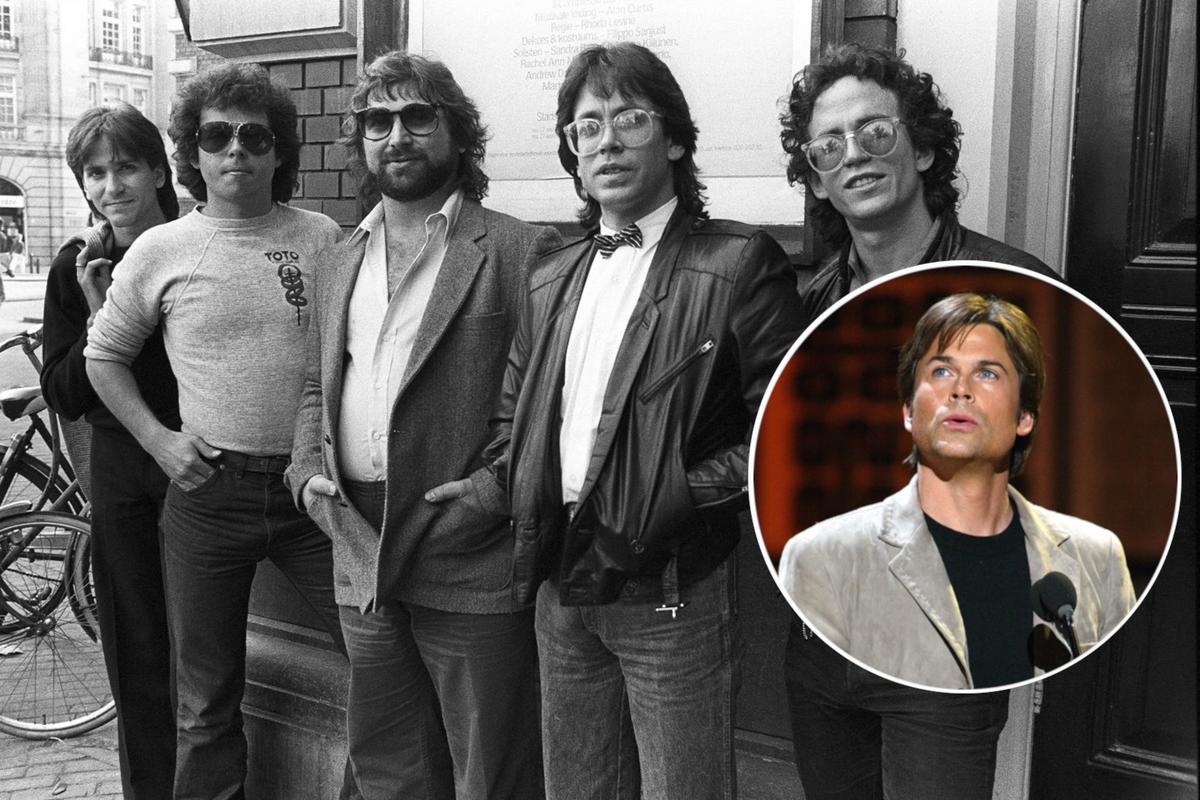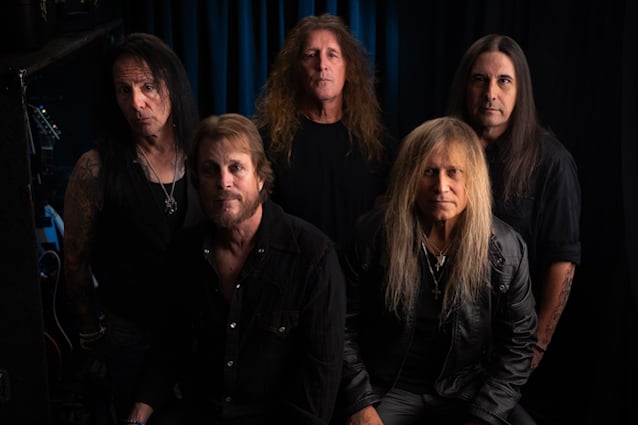In a recent interview with Screamer Magazine, former ANTHRAX bassist Dan Lilker spoke about his mid-’80s politically incorrect project STORMTROOPERS OF DEATH (S.O.D.) which also included ANTHRAX’s Scott Ian (guitar) and Charlie Benante (drums),and M.O.D.’s Billy Milano (vocals). Regarding the fact that S.O.D. garnered controversy even back in the day for the deliberately offensive lyrics of songs like “Speak English Or Die” and “Fuck The Middle East”, Dan said (as transcribed by BLABBERMOUTH.NET): ”There were some people that we did wanna piss off a little bit, but if you couldn’t tell that we were kind of being just obnoxious and provocative… People weren’t looking at the big picture. We also had a song on the record about being hung over and having no milk in the fridge. And you had to step out a little bit. And by the way, ‘Fuck The Middle East’ is still relevant. And we wrote a song about a guy in a movie with impossibly long fingers who would fucking slice your throat off with. So, sure, calling the record ‘Speak English Or Die’ — and we’re not gonna get into the cancel culture conversation, by the way. I know that [the S.O.D. album] couldn’t happen today, and we all know that. But let’s just say that we knew what we were doing. I don’t regret any of it. I know some people might’ve thought, ‘That’s over the line,’ but then we weren’t really like that. We were just being perhaps a tiny bit reckless, but S.O.D. was about the music. The lyrics were just kind of like — I was gonna say icing on the cake, but it’s more like salt. I don’t know.”STORMTROOPERS OF DEATH are commonly credited as being among the first bands to fuse hardcore punk with thrash metal into a style sometimes called “crossover thrash.” The track “March Of The S.O.D.” from the group’s debut LP, “Speak English Or Die”, was the “Headbangers Ball” intro song for many years.STORMTROOPERS OF DEATH was formed shortly after Ian finished his guitar tracks on the ANTHRAX album “Spreading The Disease”. He would draw pictures of the face of a character known as “Sargent D,” and the pictures would be accompanied by slogans such as “I’m not racist; I hate everyone” and “Speak English Or Die.” Ian would then wrote lyrics about this character. He decided to form a hardcore band based on Sargent D, so he recruited Benante, Lilker and Milano.The 30th-anniversary edition of “Speak English Or Die” was made available in November 2015 via Megaforce. The set included the original album as well as the demo recordings from the pre-STROMTROOPERS OF DEATH project CRAB SOCIETY NORTH.In a 2018 interview with the “Let There Be Talk” podcast, Ian defended the lyrics on “Speak English Or Die”, saying: “You’ve gotta understand, this was a character — I was writing for a character. This isn’t how I feel, as Scott Ian. I created a guy named Sargent D, who I was writing a comic book about and I wrote songs based on it. And if you don’t get it, go fuck yourself. I will never apologize, because that’s where it comes from.”Three years ago, Ian told Metal Hammer magazine about “Speak English Or Die”: “If it had never existed in 1985 and we tried to put that out today, no matter how hard we tried to explain the joke or the humor, yes, certain sections of people would cancel it. It would have a much harder time now. We didn’t have Internet back then.”If people don’t know, Sargent D is a character that I created, because I wanted to try and make a comic book,” Ian further clarified. “I didn’t know how to write a comic book, so I wrote songs about this character, who’s dead. He’s unliving, and therefore he hates anything alive. We explained it a few times in interviews back then, but either people want to hear it or they don’t.”Lilker previously spoke about the rise of political correctness in the social media era in a September 2018 interview with Pierre Gutiérrez of Rock Talks. Asked for his opinion of the current state of “censorship,” including the cancel culture, which is the idea that someone, usually a celebrity or a public figure, whose ideas or comments are considered offensive should be boycotted, Dan said: “Something like the S.O.D. record, yeah, I mean, sure, you could never do that now. Just trying to be obnoxious and just be a bit of an asshole and be provocative, you can’t do that anymore because everyone thinks that you’re completely serious and full of hatred.”When NUCLEAR ASSAULT did a festival in Recife, Brazil, I was talking to a couple of young metalheads in the lobby of the hotel, and they said, ‘On your first album [1986’s ‘Game Over’], you had an extra song on the cassette, and it was called ‘Lesbians’. Why? Did you have a problem with lesbians?’ And I’m, like, ‘We wrote that song in 1985 before you were even fucking born.’ The point being that no, of course, we don’t [have a problem with lesbians]. But that’s when it was okay… It was never okay, but it was a stupid song. And, of course, we didn’t mean it. It was just being obnoxious and provocative. And you can’t do that [anymore].”He continued: “I would hope that people understand that just because you have a position in a song that’s obviously funny or outlandish that you’re not really like that every day.”I don’t care. I’m not ashamed of anything I’ve done. It’s all been in fun when it was obnoxious, and I wouldn’t take any of it back. I mean, ‘Fuck The Middle East’,” he said, referencing a song on the first S.O.D. album, “but it’s still true.”I think some people have made a whole industry out of being offended,” Lilker added. “I think a lot of people try to impress their older friends: ‘Oh, did you see what they said? Oh, that’s horrible.’ I think some people are using this stuff. MARDUK and INCANTATION [were] shut down from a show in Oakland because 25 years ago INCANTATION had a guy in the band who later — much, much later — got into some crappy ‘white power’ shit that all the other guys were, like, ‘What the fuck happened to this guy?’ But because of this ancient association, now they’re on some list, and that, to me, is ridiculous.”Lilker’s 2014 book, “Perpetual Conversion”, recently saw its reprint, which includes a new foreword by Tomas Lindberg (AT THE GATES) as well as an all-new, full-color section containing previously unpublished photos, flyers, and ephemera. Author Dave Hofer describes the project as, “a zine-format biography dedicated to Lilker’s ongoing, influential career.”[embedded content]
/
January 5, 2025
DAN LILKER Doesn’t Regret Any Of S.O.D.’s Deliberately Offensive Lyrics: ‘We Knew What We Were Doing’







